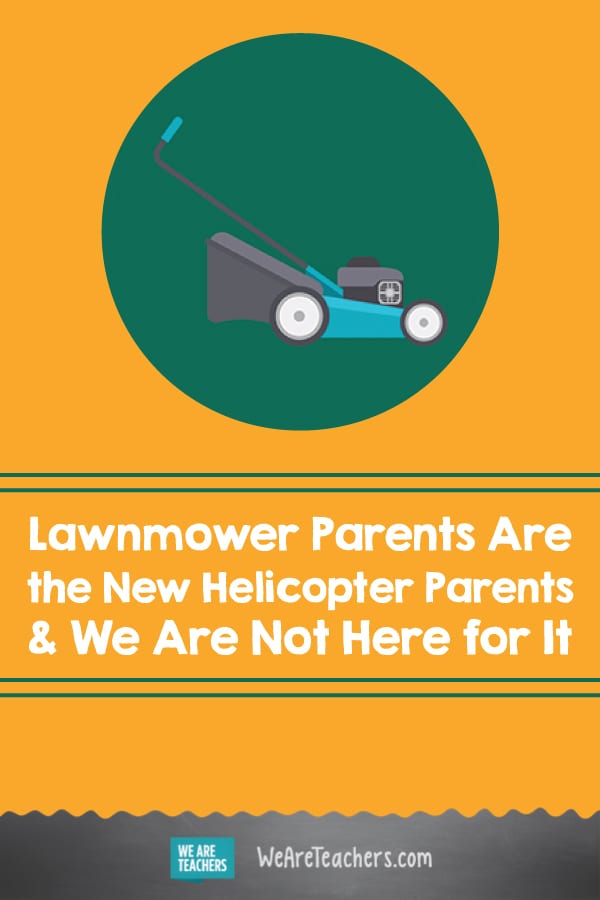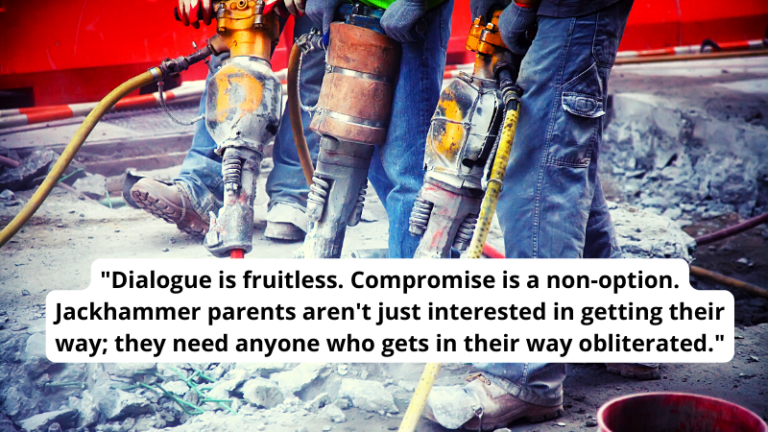This post was contributed by a WeAreTeachers community member who wishes to remain anonymous.
Recently, I was called down to the main office in the middle of my planning period. I needed to pick up an item that a parent dropped off for their child. Thinking it was something like an inhaler or money for dinner, I was happy to go retrieve it.
When I got to the front office, the parent was holding out a S’well bottle for me. You know, one of those 17-ounce insulated water bottles, barely bigger than a regular bottle of water.
“Hi, sorry,” the parent said sheepishly. He was in a suit, clearly headed to work (or something work-like). “Remy kept texting me that she needed it. I texted back, Don’t they have water fountains at your school?, but I guess she just had to have it out of the bottle.” He laughed, as if to say, Teenagers, am I right?
I took a deep breath through my nose. “Oh, I have one of those—I love mine, too,” I said. But I’m pretty sure my eyes were saying, WHAT ON THIS ACTUAL EARTH.
We’ve all heard of helicopter parents. But you may not have heard of the latest term for a troubling trend recently identified in parenting: lawnmower parents.
Lawnmower parents go to whatever lengths necessary to prevent their child from having to face adversity, struggle, or failure.
Instead of preparing children for challenges, they mow obstacles down so kids won’t experience them in the first place.
I think that most lawnmower parents come from a good place. Maybe they experienced a lot of shame around failure as a child. Or maybe they felt abandoned by their parents in their moments of struggle, or dealt with more obstacles than most. Any of us—even non-parents—can empathize with the motivations of a person not wanting to see their child struggle.
But in raising children who have experienced minimal struggle, we are not creating a happier generation of kids. We are creating a generation that has no what idea what to do when they actually encounter struggle. A generation who panics or shuts down at the mere idea of failure. A generation for whom failure is far too painful, leaving them with coping mechanisms like addiction, blame, and internalization. The list goes on.
[contextly_auto_sidebar]
If we eliminate all struggle in children’s younger years, they will not arrive at adulthood magically equipped to deal with failure.
Indeed, childhood is when they learn these skills.
A child who has never had to deal with conflict on their own will not approach the first test they bomb in college and say, “Yikes. I really need to study harder. I’ll reach out to the graduate assistant and see if they know of study groups I can join or other materials I can read to do better on the next one.” Instead, they will very likely respond in one or more of the following ways:
- Blame the professor
- Call home and beg their parents to intervene
- Have a mental breakdown or make themselves miserable
- Write nasty reviews online about the professor and their class
- Begin planning for the inevitable destruction of their college career/future
- Assume they failed because they’re stupid
- Collapse in on themselves and give up completely and stop trying
Scary, right? I see similar versions of these same behaviors as a middle school teacher all the time.
A scaled-down example of this is a parent who called to ask for an extension on a writing project on behalf of their child I’ll call Josh.
“I’m happy to give an extension,” I replied, “but would you mind asking Josh why he didn’t ask me about it? I know I’ve made it clear to my students that they’re free to ask me for extensions. If there’s something about me that is making him nervous or hesitant to approach me, I need to know about it.”
“Oh no, it’s nothing like that, he loves you,” she explained. “I just usually handle this kind of thing for him.”
What kind of thing? I wanted to ask. Anything less than perfectly comfortable?
Of course, some parents have children who suffer from anxiety, depression, or other forms of mental illness.
The parents of these students may, understandably, try to remove struggles and challenges from their child’s life because they’ve seen the way their child has responded to other struggles and challenges in the past. And while I fully acknowledge every child and situation is different—for example, 504 students absolutely need certain struggles eliminated to be on a level playing field with their peers—I’m not sure that the solution for every sensitive child is to remove as much struggle as possible.
I have clinical anxiety that can feel crippling at times and that I struggled with often throughout my childhood. But I can’t imagine how much worse my anxiety would be if my parents had taught me that my anxiety was something to be feared and avoided, not dealt with head-on; had I been raised to shy away from anything outside my comfort zone instead of process and work through my discomfort; had I received the message as a child that my parents—not me—were the only ones equipped to handle the challenges in my life.
If we want our children to be successful, healthy adults, we must teach them how to process through their own challenges, respond to adversity, and advocate for themselves.
Check out our video on lawnmower parenting here.
https://www.facebook.com/WeAreTeachers/videos/274012373218062/
P.S.: This article by a college professor on lawnmower parents is worth checking out.
Come and share your thoughts on lawnmower parents in our WeAreTeachers HELPLINE group on Facebook.
Plus, teachers share the most outrageous requests from parents.


